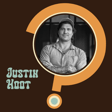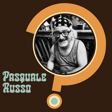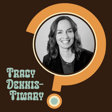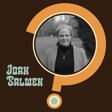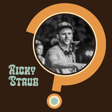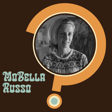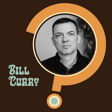Become a Creator today!Start creating today - Share your story with the world!
Start for free
00:00:00
00:00:01

Episode 23 - Curtis Chang
Curtis Chang is a public theologian, entrepreneur, author, professor, and a former pastor. Curtis shares about experiencing anxiety as a young boy, and how it shaped him into adulthood. We talk about how anxiety is ultimately about loss, and the importance of having an identity that can withstand loss. Curtis also shares his take on the current role Christianity is playing in US politics and how anxiety has played a part in shaping it.
His book, The Anxiety Opportunity, is available on Amazon. To learn more about the work he’s doing within Christian politics, visit after-party.org.
Transcript
Introduction to the Show
00:00:11
Speaker
Hello and welcome to What's Next with Joel Krogman. I am Joel and this is my
Guest Introduction: Curtis Chang
00:00:16
Speaker
show. This week is my conversation with Curtis Chang. Curtis is many things. He's a public theologian. He's an entrepreneur, an author. He's a professor and he is a former pastor.
00:00:28
Speaker
His book, The Anxiety Opportunity, was referred to me by another friend of the podcast, Dr. Tracy Dennis Tiwari, who was on a few months ago, and after reading his book, I really wanted to speak with him. I did, though, have anxiety leading up to this conversation, and
00:00:48
Speaker
I was really trying to think about why and I think it comes down to a few things.
Joel's Faith Background and Anxiety
00:00:52
Speaker
Some are personal reasons and some are societal forces and things that are shaping our culture right now and Curtis is a Christian and that frames a lot of his work and his perspective and I am aware of how sometimes Christianity has become polarizing in this country.
00:01:14
Speaker
And it's also in myself. I've shared this before on here, but I grew up in a Christian family. My dad was a pastor at a church that my parents helped to start when I was very young. And growing up, we were all very involved there. It was kind of my whole life.
00:01:32
Speaker
If you grew up like I did, there's an understanding that your Christian beliefs are the truest thing about you, the purest thing about you. Fail everything else as long as you have those beliefs, you're okay. And that can make it challenging when your beliefs change or when you have questions or when you step outside of that bubble, which I have done. And sometimes it's hard for me to reconcile that with where I'm at now.
00:01:56
Speaker
So, why talk with Curtis about any of this? Well, I'm still accepting and acknowledging the fact that I was really shaped by this worldview, and it has a lot of unseen implications for how I live my life, how I feel about myself, and the way I experienced my own anxiety as a child growing up in the Christian context, and many people I've witnessed within the Christian context who had no idea how to respond to anxiety in a way that was healthy.
00:02:26
Speaker
I think Curtis's view on it is so unique. He's being very honest about his experience, struggling to live with his own high levels of anxiety. And I really appreciated his perspective and enjoyed our conversation.
Connecting Over Location and Work
00:02:40
Speaker
So please enjoy my conversation with Curtis Chang.
00:02:50
Speaker
Hello. Can you hear me? Hey, Curtis. Yeah, I can. Great. Curtis, where are you? I'm in the Bay Area, San Jose. Oh, in San Jose. OK. Yeah. What about you? I am currently in St. Louis area, like in Illinois, but St. Louis. I was going to say, yeah, the 708. I used to have a 708. Were you from the suburbs of Chicago at some point? Yeah, I am. Yeah, I lived in Oak Park for four years.
00:03:15
Speaker
Yeah. I was Morton Grove in Skokie. Okay. Northwestern suburbs of Chicago. Yeah. That's right. That's right. Yeah. Oak Park. I love Oak Park. That's a great neighborhood.
00:03:24
Speaker
Yeah, it's great to meet you, Curtis. Thanks a lot for coming on the podcast. A huge thank you to Dr. Tracey Dennis-Tawari, who was the one who initially shared your name with me and your book.
Anxiety in Society
00:03:38
Speaker
She was on as a guest on the podcast a couple of months ago, and I asked her a question about something to do with anxiety in the context of faith and
00:03:50
Speaker
And then she mentioned you and so I picked up your book and I really liked it and it led me to want to talk to you about it and I've got lots of questions for you. But the more I learned about you, there's a lot I want to talk with Curtis about.
00:04:12
Speaker
So while I've been really looking forward to this, I also have to say it's thinking about and preparing for this conversation. I have quite a bit of anxiety around it. No, no, we'll be good. But not because of you, but because of me. It's probably helpful to tell you why, just to set the tone. The topic of Christianity has become a very difficult one for me to talk about, and that is because
00:04:38
Speaker
The word Christian and what it means has become so polarizing. I have really good friends who I really love who very strongly identify with the label of Christian and I have really good friends who I really love who are
00:04:54
Speaker
offended by it and in some weird way that describes me too. There's parts of it that I think are really great and there's parts of it that I find offensive. Sure. For all those reasons and many more, that's why I'm having some anxiety around this conversation. But what I love is your book and the work that you're doing is diving right into that conversation. I wanted to just level set. Yeah, I appreciate that.
00:05:22
Speaker
Yeah, that all sounds fine. We're living in a messy world. We're all on a journey.
00:05:30
Speaker
And it's good to trade notes along the way. Yeah. Okay. Cool. Cool. So I just want to say that I really admire the work you're doing, the book you wrote. And I really, I think what I really like is just the approach you're taking, that you are talking about this from a very vulnerable and open and honest position in your experience with anxiety.
00:05:55
Speaker
And I think that that's really hard to do. So why write this book? Well, I think it's because we're living in an anxious age where all the statistics on mental health show that we are showing skyrocketing.
00:06:08
Speaker
levels of anxiety, especially among our teens and youth, but it's actually going across all demographics. So we are in a unprecedented level of anxiety. I saw a statistic that showed that the average teenager right now suffers sort of the equivalent levels of visible sort of symptoms of anxiety that would have been the average of hospitalized mental health patients in the 1950s.
00:06:33
Speaker
Wow. So that's just how bad it's become.
Curtis's Personal Journey with Anxiety and Faith
00:06:36
Speaker
Essentially, if we were back in the 1950s, the majority of American teenagers would qualify for hospitalization. Is that like walking around with that level of anxiety? Yeah. Oh, wow.
00:06:48
Speaker
Yeah. You know, in terms of observable symptoms and so forth. And we're headed for more. We're in 2024. This is an election season. Just everybody is feeling anxious about the state of our country, the future, regardless of where you are on the political spectrum.
00:07:05
Speaker
So we're living in an anxious age. We're anxious people and we have to make sense of it. And I have gone through my own journey of realizing that I've been an anxious person and that it's, you know, had a very profound impact, disruptive impact, as well as transformative impact on my life. And so I felt like I wanted to share that story in hopes that it could help people and share just not only my personal story, but
00:07:35
Speaker
you know, part because I am a Christian, I am a former pastor, I am a public theologian. And by that just, I mean, I'm somebody who thinks about God and talks to people in the public about thoughts about God, that I wanted to especially to connect
00:07:53
Speaker
my own experience of anxiety with how I think about God and how those two meet, because I think in our anxious age, we tend to not realize that our, how we think, how we relate to, what we believe about God actually has a meaningful impact, both potentially negative, but also really potentially positive about actually how we go through our anxiety.
00:08:22
Speaker
In your book, you talk about how anxiety was something that you started experiencing as a kid. What was life like for you at that point? What were your parents doing?
00:08:34
Speaker
Were you the youngest child in your family? What was some of the snapshot of your life at that time? Yeah, I was the youngest child, but I tell this story in my book, The Anxiety Opportunity, which is that one of my earliest memories of anxiety was actually being a latchkey kid.
00:08:54
Speaker
My parents were both working. And so I would come home to an empty house after school by myself. And how old were you? I was seven years old, I believe, if I remember correctly. And so back in those days, that's what happened. You just let a seven-year-old come home from school and let themselves in. And so that was my first
00:09:17
Speaker
memory that I have of anxiety. I don't think I quite could have named it at that point as a seven-year-old, but it was anxiety. I was worried about what would happen. Would there be somebody, would somebody break into the house? Had somebody maybe already broken into the house, it would be waiting for me when I entered the house, that creaky sound in the attic. What was that? And so I developed all sorts of coping mechanisms to deal with my anxiety that I talk about in the book.
00:09:45
Speaker
including things like finding out when my mom would leave from work and then timing to the minute for when I should be able to expect her to home from work and so forth. And so I write that and I share that story because it shows how early anxiety enters our life, such that even a seven-year-old is having to construct these elaborate coping mechanisms to respond to anxiety.
00:10:11
Speaker
I related so much to that story because I have a very similar, though I wasn't a latchkey kid, but I developed an intense anxiety as a kid around the weather, tornadoes in particular. I watched a movie as a kid where a big storm came in and it destroyed a town and
00:10:33
Speaker
From that point on, I was obsessed with what was happening with the weather and the sky and were storms coming in or not. I always knew which direction was west because in my mind, that was the direction that scary storms came from. It was never far from my mind. That bunch of coping mechanisms around how to manage that fear
00:10:56
Speaker
Did you have anybody that was helping you through it at the time? Were your parents aware of it? Were your sisters aware of it? You had sisters, I think? I had sisters. They were not aware of it. And this is probably why I wrote the book, because I think we have various cultures that are more or less able to name anxiety and help people make sense of it. So the Chinese American culture,
00:11:20
Speaker
I think especially in the 1970s, was not well-equipped to deal with anxiety. My parents didn't really have a category for it. And if we expressed any sense of anxiety, they would say things like, what do you have to worry about? Everything's fine. Don't worry. Which is not that helpful, actually, for a seven-year-old or even older than that.
00:11:40
Speaker
So I had that going on. And then also, I was part, I was become a Christian kind of around that little, maybe a little couple years after that. But there are large streams of the Christian tradition, contemporary American Christian tradition.
00:11:57
Speaker
that are not actually well suited to help people deal with their anxiety that they Have their own version of the Chinese American like what are you all worried about? Don't be so worried Yeah, which it would be over spiritualizing anxiety as a you know That's a sign of lack of faith and you just need to pray more and so forth So I had both going on for me, which is why I think in many ways I did not really come to terms with the reality that I was an anxious person until I was an adult and
00:12:26
Speaker
Did you grow up in a, like, were your parents Christians growing up? My parents were not Christian. I was actually the first person in my family to become a Christian. How did that happen? Through a local church that was doing what was called a vacation Bible school. Yeah. VBS. All right, so you know it, you know it. I've been spent many summers in VBS. Yeah, so I became a, I first heard about Jesus in a local church of VBS.
00:12:52
Speaker
And then from there, I invited my sisters to come and they became Christians and my mom became a Christian. And so that's how, but I was the first person in my family.
00:13:02
Speaker
I can only imagine if my, I have a six and a nine-year-old, if they came home saying that they were, you know, a new religion or whatever that I was not, that I'd be asking some questions. You know, I think my parents were okay with it. They thought, okay, that's a good thing. Religion is a good thing. I want our kids to have that. And then, like I said, eventually, you know, my mom started attending church with us and became a Christian herself.
00:13:29
Speaker
I didn't experience any opposition or anything like that, but it was very much self-driven. My faith was very much, I think, in some ways, that was a benefit to me. It was not handed to me by my parents. I had to choose it, and then I had to cultivate it by myself to choose to go to Sunday school. We had what's called Boys and Girls Club. I think as an eight-year-old or a nine-year-old,
00:13:55
Speaker
I resolved to read the Bible to cover by myself. I didn't understand half of it. And you did? Yeah, I did. Yeah. Yeah. That's impressive. So you're going to church on your own as an eight-year-old? Like walk into your local church?
00:14:09
Speaker
Yeah, we're getting a ride or something like that. So yeah, just I think from early on, I thought there's something here. I'm not sure if I could articulate it clearly, but I think I was somebody who looking back, I would say I was haunted by God, like a God hunger was in
God as Architect vs. Fixer
00:14:26
Speaker
me. And I think at some point very early on, I thought, you know,
00:14:32
Speaker
I think life does not make sense without a sense that there is somebody who created us, made us for something more than this, is watching over us, has a future for us. And so that has always haunted me for most of my life.
00:14:50
Speaker
Did the idea of faith and Christianity also seem as it was presented to you as some way of answering these questions that you were facing with the anxiety you were experiencing? I don't think it was conscious at the time that I was going to faith to deal with my anxiety. I think it was more just a sense of, I think there's a God. I think that God wants me to know him.
00:15:18
Speaker
Then over time, I think, as God becomes more real and you develop what we believe is a actual relationship with God, the Christian faith is one in which all of our lives
00:15:34
Speaker
are brought into relationship with God, including the parts of our lives that feel unresolved or problematic. And so I think over time, I began to kind of bring my anxieties to God. But even there, so much of the Christian life, it's like any relationship where you
00:15:56
Speaker
develop deeper and deeper knowledge and awareness of another. And so I think when I started as a child, I thought what it meant to bring your anxiety to God was to have these things you worry about. You bring this to God and God is like the grand fixer in the sky that will then fix these things so I don't worry about it. And it's actually taken me quite a long time. Like I think into my adulthood, before I came to realize that God was more than just a cosmic fixer of all of our problems.
00:16:26
Speaker
but someone who actually is meant, we're meant to go through our anxieties with. Yeah. Why do you think that is so pervasive? Well, I write about this in my book that I think fundamentally that there is a difference between viewing God as a blueprint versus an architect. Yeah. So a blueprint is something that has all the answers, right? It's got, everything's already laid out.
00:16:52
Speaker
The whole schematic is there. And we can be very tempted to think of God as a blueprint for our lives. That will make sure that all problems are outlined. There's a fix for everything. We know exactly where we're going. There's no uncertainty and therefore no anxiety.
00:17:10
Speaker
But a blueprint is impersonal. It's a thing. It's actually just a schematic, right? It has kind of a faux certainty to it in that everything is laid out, but it's not a person. It's not a living being, right? It's a blueprint.
00:17:28
Speaker
And that's very different than an architect right with an architect if you have an architect it's a person contained in that person is wisdom insight to answer a lot of questions you have about how you're going to construct this thing called your life but you're only gonna get to those things by actually developing a relationship with the architect and actually
00:17:49
Speaker
knowing who this architect is, trusting who this architect is, working out your questions in an interactive back and forth relationship with this architect. And I think many Christians are still stuck.
00:18:01
Speaker
in relating to God still in the blueprint mode, that they just want God to deliver, to be like, you know, I get earlier told, a cosmic fixer in the sky or a cosmic like printer in the sky, that if we just push the right buttons, we'll get the right blueprint for our lives. And the actual truth of the Christian story
00:18:23
Speaker
is that God did not drop from the sky a cosmic blueprint. God actually came into human existence in the form of a person, in the form of Jesus, who was to reveal the very personal nature of who God is, such that we could relate to Him, ask Him these questions, work out our questions and doubts, struggle and wrestle through our lives with Him.
Anxiety as Growth Opportunity
00:18:44
Speaker
And the gospel stories are a picture of people doing that with Jesus, and they're meant to give us like, this is what it's like to relate to God. This is what it's like to relate to God as a person, as a, again, like my metaphor as an architect. And so one of the opportunities of anxiety, why anxiety, and I write my title of my book, is the anxiety opportunity. And I contrast that with thinking of it as the anxiety problem.
00:19:13
Speaker
is that anxiety is one of our most profound opportunities, I think, to make this transition from God as a blueprint to God as an architect. Because most fundamentally, once we have anxiety and we realize that we're struggling with our anxiety, we're confronted with this question, do I think the answer to this anxiety is a blueprint that makes all uncertainty, all possibility of loss go away in my life?
00:19:39
Speaker
Or is this something that I'm actually supposed to go, an experience I'm supposed to go through and go through not alone, but with another, with another who knows me, loves me, who, uh, who I can ultimately build a trust, a trusting relationship with.
00:19:55
Speaker
Yeah. Do you think that one of the fundamental barriers to us being able to engage with anxiety is shame? I think that's one of them. I think when we have shame, it means we feel like what we're experiencing is a problem that is supposed to go away. So if we think of anxiety solely as a problem,
00:20:19
Speaker
And once we think of it as a problem, then we think, oh, I should make this problem go away. Then that's when shame kicks in. And especially when we think that that problem is rooted in who we are as a person. And so that's really the essence of shame, when we think it's a problem that needs to go away and the problem is actually me, is intrinsic to me.
00:20:40
Speaker
that's problematic yeah yeah once we're in that mode then it's going to be very difficult to actually enter this experience with a sense of like wait there's something in here for me there's a growth opportunity a profound spiritual growth opportunity uh for me in my life with god and so yes i do think again another that would be another reason why i wrote the book was to
00:21:00
Speaker
Actually, why I titled it the anxiety opportunity is I wanted to move Christians and anybody else that is interested in this perspective from thinking of anxiety as a problem that means there's something wrong with me to anxiety as a natural normal part of what it means to be human. And one of our most promising potentially transformative opportunities for spiritual growth
00:21:26
Speaker
This thing I constantly keep coming back to with your book is that the so what's of your points kind of point back to like the Christian faith and how these things can help us get closer to God. But at the same time, I feel like a lot of what you're talking about is also just like how they're also very helpful takeaways at the core of taking some of these first steps towards being healthier, having healthier mental pictures of ourselves and of the world around us.
00:21:51
Speaker
Yeah, that was actually one of the encouraging things about the reaction to the book was, again, the book is written from my perspective as a Christian and written, I would say, probably with a spool's eye of the target, being Christians who have struggled with anxiety, especially shame about anxiety or feeling like, hey, I shouldn't be feeling anxious. It means I have lack of faith.
00:22:13
Speaker
really, I would say that's kind of a core audience. But I had a number of folks who are not Christians, who are friends who read the book and found it really helpful for very much the reasons you just described is because even though I am writing to Christians, I always have to remember, Christians are just like everyone else that
00:22:35
Speaker
just more so, I think is
Vulnerability, Acceptance, and Faith
00:22:37
Speaker
the way I put it. This is a phrase that a Jewish friend of mine said about being Jewish. She's like, we Jews are just like everybody else, just more so. And by that they mean, it's like, we suffer the same things. We have the same kinds of doubts. We have the same kinds of struggles. We're not any better as human beings. We're not any, nor are we really any worse. We're just, we're human. That is part of the Christian narrative is that all human beings
00:23:03
Speaker
Regardless of what you believe are made in the image of God and that's that's from the very beginning of the Bible, right and so as Christians we are Fundamentally human we're very human and it's just if anything Christianity just magnifies the very human nature things that we all are
00:23:23
Speaker
struggle with now it ultimately tells a story about a different way of Dealing with that what it means to be human other than just being thrown back onto one's own resources And capacities alone as a human that's that's the difference is like
00:23:39
Speaker
It's a human story, but it tells the story of God become human in order to enable us to actually be who we were truly meant to be. But in this fundamental diagnosis of the human condition and diagnosis of both the human problem as well as the human aspirations, it's universal. It's fundamentally human.
00:24:01
Speaker
Part of the story that runs parallel to that for you is at some point for you to accept your anxiety and really talk about it in the way that you have in your book so openly. You've had to go on a journey of self-acceptance, of being okay with the fact that you're somebody who has anxiety, you struggle with these things.
00:24:21
Speaker
So one, I wonder if you could talk a bit about that. And two, I think that that is paradoxically your greatest strength, but also potentially the thing that makes the message so hard to be received by a wide swath of Christianity that is sort of like the Christianity as strength and to have no weakness.
00:24:40
Speaker
Yeah, I think that's a false picture of, a very false picture of Christianity because, you know, let's remember a Christian is a follower of Jesus. And when we look at who Jesus was, this was a man who died.
00:24:57
Speaker
helpless, alone, abandoned, betrayed, like he experienced fully shamed, mocked. This was a man who experienced the very converse of the American virtues or the quote unquote virtues of self-reliance, ruggedness, individuals. Jesus was in his most decisive act, his death on the cross was the opposite of those things. And the gospel and the Bible is full of
00:25:27
Speaker
God chose the weak to shame the wise. God chose what was not to actually expose what was. And so in that sense, yeah, I think the Christian story and who Jesus is, is a deep subversion of the American myth of what it means to be strong. And frankly,
00:25:47
Speaker
myths in every culture about what it means to start, including the Chinese culture that I grew up, the gospel, the God, the Jesus story subverts the Chinese narrative of strength. Like I said, my mom's, you know, sort of admission to me like, don't worry, just be strong, you know, nothing to be worried about. So that's true. I think that is, that's kind of a universal quality of the Jesus stories that it subverts all of our definitions of what's strong.
00:26:13
Speaker
I will say one thing about the issue of self-acceptance because it is true. There's an element of self, a call to self-acceptance that is very much
00:26:26
Speaker
part of the Jesus story, but it's different than the self-acceptance that's in the American, classic American secular story. Because right now, self-acceptance, it is accepted as like, that's what we should all be. We should all be striving towards self-acceptance. There's a difference though, which is, and I write about this in my book, in that what anxiety often does for people is it's actually very difficult
00:26:54
Speaker
for people who are struggling with anxiety to have self-acceptance because there's a war going on within an anxious person. Oftentimes there's an anxious self, like sometimes often rooted in very childhood, childlike or childhood experiences and beings.
00:27:11
Speaker
And then there's another part of ourselves that I call the ideal self, like our sense of self that we want to be, that we want others to view us. That's also in us. That is also part of ourself, right? So what happens when your ideal self does not want to accept
00:27:27
Speaker
your anxious self. Your ideal self is like, I want to be strong. I want to be viewed as self-reliant. And this part of me, this weak, childlike person, the seven-year-old who is afraid of coming back to an empty house, I don't like that part of myself. I don't want that part of myself to be there. That kind of war goes on all the time within anxious people. We hate and dislike and shame our anxious selves.
00:27:53
Speaker
And so in that case, what does self-acceptance mean if actually part of yourself is at war with another part of yourself, right? What does that mean to get to self-acceptance? And this is where I think the Gospel offers a story that says, you know, within yourself is not just yourself in isolation, even these parts of yourself. There is
00:28:16
Speaker
There is within your very self God that Jesus has is God come into yourself. And so there's another there's another being who is capable of accepting all of these weak parts of yourself these parts that you don't like that you're ashamed about.
00:28:31
Speaker
There is another that doesn't mean that isn't rooted in your own isolated individual self, but is another come into you, come into your very being to actually give you an acceptance that you cannot self generate by yourself.
00:28:46
Speaker
So your faith for you was really—being able to frame it that way was sort of the doorway that allowed you to walk through into real self-acceptance that even if you don't accept it, you know that God does. That's right.
00:29:03
Speaker
That's exactly right. And so you no longer have to reject it because... Well, I still struggle with it. I would say it's all completely resolved, but I have another. I have a higher authority in my life. I have a presence within me that loves me more than I can even love myself.
00:29:22
Speaker
Uh, and so, you know, like this is where the the american narrative of self-love self-acceptance Ultimately, there's a germ of truth to that in that we do need to be loved ourselves do crave acceptance Yeah, uh, but but the but this is this would be the subversive element of the jesus story is you know What that you can't generate that by yourself
00:29:44
Speaker
That unconditional true deep love and acceptance of yourself, it needs to come from outside of, not outside like disconnected from you, but not solely rooted in yourself, individualistic resources.
00:29:58
Speaker
Yeah, you need to be able to come to a way of really, truly being okay with the fact that you are these various pieces and parts that are not perfect. You're limited. Yeah, you're imperfect. And the question that... And I do think it's... I don't deny that there are people who have not Christians at all who somehow come to that state of deep self-acceptance.
Christianity and Politics
00:30:20
Speaker
I think it's completely possible to do that. I just know for myself,
00:30:25
Speaker
I don't think I could do that. And I have lived an experience and I am part of a larger story in which I don't have to do that just by myself through my own heroic whatever efforts. I can actually enter into a story which God himself has accepted me and loved me through Jesus.
00:30:50
Speaker
I think that segues into the idea of Christianity and the role that it's taken in politics in the United States specifically. I know that you have a pretty strong viewpoint on some of this. I wonder if you could just spend a minute talking about your viewpoint on what's happening.
00:31:08
Speaker
Yeah, so there's a lot of things that's happening in terms of the Christian sort of, and I would say the Evangelical, maybe when we put it is, I think this is most prevalent, most powerful and most dangerous among conservative white Evangelicals, which is a subset of Christians, right? It's not, we're not talking about, I mean, I think Catholics have their own version of this going on, but
00:31:31
Speaker
You know, the part of the problem, overall problem that I'm most familiar with is what's classically called the evangelical church, especially the white evangelical church. And I think you're very perceptive to actually connect it to anxiety. This is actually why I wrote the anxiety book in 2023 before the work that I knew we were going to be doing in 2024 on politics. OK. Because I've launched a project and I will have a book coming out in a couple of months in April.
00:32:00
Speaker
called The After Party. And that's the name of the larger project that I'm doing with my friends, David French and Russell Moore. It's called The After Party, and it's called Towards Better Christian Politics. And so this is where I think the anxiety of
00:32:20
Speaker
Christians and their sort of dysfunctional or unhealthy relationship with anxiety is Actually part of the problem is because I think what anxiety is is that its essence is the fear of loss it's the fear of loss and that's what we get anxious when we fear like we're gonna lose something right, you know, the reality is that
00:32:43
Speaker
white evangelicals are in a place of cultural loss right now. They historically have had a more dominant shaping influence over broader culture, and the broader American culture in society is changing now, where they no longer sort of occupy the same level of expectation that their views will sort of command widespread congruence with the broader culture.
00:33:08
Speaker
And so there's a tremendous amount of anxiety among white evangelicals right now. It's especially prevalent, I think, in issues of sexuality and gender, but I think it's true on race as well. And all of that anxiety is, I think, fueling that fear of loss, is fueling the sense of fear of a dysfunctional reaction to anxiety, where rather than go through anxiety, go through the kind of inevitability of loss, they're trying to avoid loss.
00:33:38
Speaker
And so just like an individual level, when we try to avoid loss, we get into all sorts of dysfunctional patterns like rumination, like avoidance behaviors, like obsessiveness and so forth. You're seeing that worked out at a grand scale in this whole community where in this furious attempt to avoid loss,
00:33:57
Speaker
they will go to take extreme measures and unhealthy measures to avoid loss, like literally trying to avoid the loss of an election, as we saw on January 6th. Now, there are other dynamics in play. I wouldn't pin all of this on just anxiety, because again, remember my point, Christians are just like everybody else, just more so.
00:34:21
Speaker
Everybody is suffering from things like polarization that's driven by media, that's driven by the algorithms of social media that are isolation. So it's not just Christians that are suffering from this, but I think the Christians are more so in this way because their faith can kind of supercharge a lot of both
00:34:43
Speaker
at its best, redemptive reactions, but also negative, unhelpful reactions as well. And so this is why I think part of the answer, this is why I wrote the book, is I think part of the answer to the political polarization, to the political hijacking of evangelicalism is that we need a deep, deep reform that includes a deep reformation of how we handle and deal with our own anxiety.
00:35:10
Speaker
going back to that the same the same point that we were talking about earlier where you you had to come to a Realization and an acceptance of the fact that you don't have control There are these aspects of your life that that are a part of you that you don't like You have to you can't reject you can't reject these things Well, and you have to be able to accept laws like that is fundamental. Yeah Lee for an individual or for a country for a whole community is
00:35:40
Speaker
is anxiety is about loss. We get anxious when we face the prospect of impending loss. So as an individual, if we cannot tolerate loss in our life, then we ruminate. We keep thinking, if I just think enough about this thing, then I will come up with a scenario where I don't have to lose the thing I fear losing, or I will go through all these avoidance mechanisms. I write about this book. There's a bunch of these things.
00:36:06
Speaker
at the heart of a lot of anxiety disorders. And again, it's important to distinguish an anxiety disorder is an unhealthy reaction, an inability to actually experience anxiety healthily. Anxiety itself is a normal, natural human reaction that's inevitable because we all inevitably face loss. But when we can't handle loss, when we can't experience anxiety in a healthy way, then that's when we get into all these disorders. And it's all at its root.
00:36:35
Speaker
the desire to avoid loss. We know that if we're at all kind of self-aware as individuals, we can perceive that. Well, you just blow that up and magnify that over a whole community like white evangelicals that are fearful, anxious about losing something, losing cultural, social status in this world.
Hope and Transformation
00:36:58
Speaker
And then at a collective level, they are engaging in the collective version of all of these avoidance mechanisms, whether it's denial, like election denialism, or it's rumination, like ruminating over. That's what conspiracy theories are, is there a collective rumination or QAnon or something like that?
00:37:17
Speaker
It seems like people are thinking about tribalism and how we identify as groups. Part of the way that people are identifying is around some of these anxieties and some of these avoidance habits. What kind of hope do you have for the future of how this shapes what's happening culturally and politically right now in the United States?
00:37:41
Speaker
I don't know. If you're asking me what do I think is going to happen this year or next year, the honest answer is I don't know. Which is not to say I don't have hope, but where I anchor my hope, again, to go back to the blueprint versus the architect distinction.
00:37:59
Speaker
My hope is not in some blueprint. My hope is not that I think, yes, 2024 is going to end this way, or American democracy is going to definitely survive all the toxic forces of which evangelicals are part of that. I don't have a scenario. I don't have a blueprint that I think, oh, that's where I'm placing my hope in.
00:38:21
Speaker
My hope is in the architect, and so my hope is in God, as revealed in Jesus. And that is different than saying, I know how this particular chapter of the story ends up. I mean, I hope we make it as a country. I think there's probably a
00:38:37
Speaker
Better chance than not that we will somehow survive this next election season as a country But but I more than any election in my lifetime. I'm not sure about that So my hope is not in a blueprint. My hope is that you know, I I
00:38:53
Speaker
I'm in relationship with and I believe in a God who is bigger than America, bigger than American democracy, bigger than 2024, bigger than this election, and that the architect of the story, the big story of humanity is going to ultimately right the ending. So if you're asking me if I have hope, I do have hope, but that's where my hope is in, not in that I know for sure what's gonna happen.
00:39:22
Speaker
Do you have hope that people can turn and become vulnerable to doubt, to the unknown, that people actually can learn that lesson? Yeah, absolutely. I wouldn't be doing the work that I'm doing now if I didn't have any hope for that. And I think, again, like I said,
00:39:41
Speaker
the Christian story is one of which we're just like human beings, but more so. And so the part of the more so that we get is that we can have more hope because we who have experienced
00:39:54
Speaker
The reality of Jesus' presence in our lives know that profound change, profound spiritual growth is possible. I've experienced it. People who I follow Jesus with have experienced it deeply, so we know it's possible.
Conclusion and Resources
00:40:10
Speaker
At what scale, who will respond to that or versus who won't? I have no idea, but it is absolutely possible and in fact, promised. Yeah, yeah.
00:40:20
Speaker
Well, thanks for your time today, Curtis. I really do think that what you're doing, sharing this message and being vulnerable is really needed. What can people do to find out more about the political after party? Yeah, go to after-party.org. That's after-party.org. You can learn more about it. It comes in a variety of forms. It comes in the form of a course.
00:40:42
Speaker
that you can take it either as an individual or especially with other people like if you are part of a book club or you're part of a small group like in your church if you are you know part of a church or you're just part of with some friends that want to experience this about what it would look like to move towards a healthier Christian politics go to after-party.org the book comes out in April as well as a set of songs that we have a worship album around Christian
00:41:10
Speaker
Christian politics that is a hopeful set of songs. Cool, cool, great. Thanks a lot, Curtis. I appreciate your time. It's been fun to talk, Joel. Thanks for having me. Thanks a lot. Take care.
00:41:32
Speaker
It got a little dark there at the end, which might have created some anxiety, but I think that's why the work he's doing and his perspective is really important. These are anxious times, like he said. Curtis' book, The Anxiety Opportunity, is available on Amazon, and you can find out more about the after party by visiting afterparty.org. The links are in the episode description.
00:41:58
Speaker
Okay, that's it for this week. Thanks for being here. I appreciate it, and I'll see you again in two weeks.

